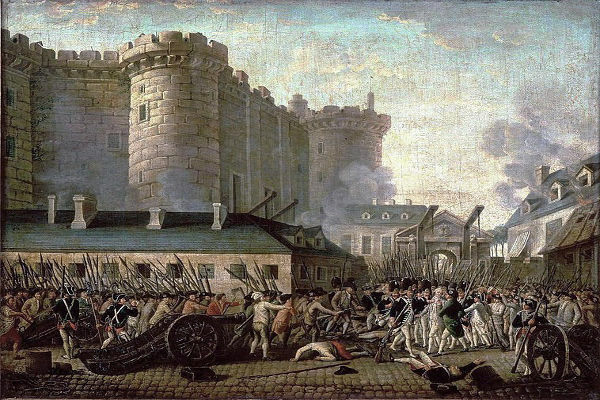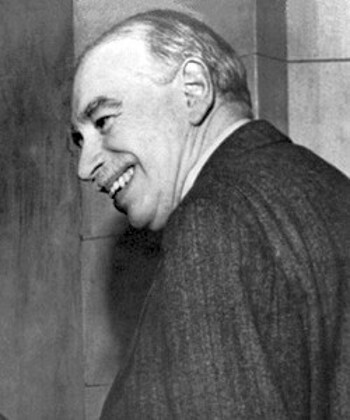O Democratic state is based on compliance by governments with the rules of law (which was already proposed by the so-called Rule of Law, which had its birth and rise in the 17th and 18th centuries) and in the so-called Social State of Law or Welfare State, which comprises a series of measures that must be met by the State. sovereign to make people's lives dignified.
Therefore, a Democratic Rule of Law is one that guarantees, from a democratically governed State and submitted to the Law as the first foundation of its actions, meeting the basic elements that promote a dignified life for all citizens.
Also know: secular state: guarantee of freedom of belief
Rule of Law and Democratic Rule of Law
There is a fundamental difference between the legal categories named Rule of Law and Democratic Rule of Law. O rule of law emerged in the 17th and 18th centuries within the scope of the revolutions that caused changes in the political organization of societies English and french when ending the absolutism
(authoritarian form of government based on the imposition of law by an absolute ruler) and implementing parliamentarism (system of government composed of a body parliamentary – deputies, senators and the Legislative Power in general – who are subject to a system of laws, the Constitution, and which must govern based on compliance of these laws).
At the systemparliamentary, legislators must govern from what is provided for in the body of laws. If lawmakers commit excesses and break the law in their government, they can be deposed. This is because there is, in the Rule of Law, the provision of a kind of "natural law", which must be regulated by the contractSocial, as established in the realm of Political Philosophy by the modern English philosopher John Locke.
According to Locke's social contract theory, all citizens have rights by nature and, insofar as they can when conflicts arise in the claim of these rights, citizens unite in society and establish an agreement so that there is the conflict mediation and, consequently, peace. When a citizen breaks the covenant or the social contract, he commits a crime.
Based on these ideals, England implanted parliamentarism in the year 1689, after going through centuries of absolutism and the Oliver Cromwell's dictatorship, which were authoritarian regimes because they imposed laws by themselves and did not respect individual rights. At France, something similar happened, because the French Revolution deposed the absolutist power from the battles that took place between 1789 and 1795 and replaced a governmentrepublican based on compliance with the rules of law established by the Constitution.
THE crucial difference between France and England is that the British adopted parliamentarism with the monarchy. Thus, the government was represented by the monarchs, but the body of laws that regulates the government was established by the Legislative Power. The French, on the other hand, adopted the republican system. tripartition of powers (an idea first proposed by the French Enlightenment philosopher Charles de Montesquieu), which aims to combat any type of excess of power from the equal distribution of the legislative, executive and judiciary.

The power in republican governments is distributed, therefore, among those who make the laws (the Legislative), those who enforce the laws in their governments (the Executive) and those who act when there is non-compliance with the law by one of the powers or ordinary citizens (the judiciary). The fundamental rights that regulate this type of State are the rights to life, liberty and equality.
The modern French and English governments began to establish in the world the so-called rule of law, which since its foundation had a strong bourgeois and liberal inspiration. O liberalism is an economic doctrine idealized by John Locke and better theorized and substantiated by the English philosopher and economist Adam Smith. According to these thinkers, the government shouldn't intervene in the economy and, directly, in people's way of life, limiting itself to solving conflicts and organizing state funds and applying them to public works.
A number of distortions have occurred in liberal societies, mainly due to the misery in which the population found itself and the exploitation of factory workers by the bourgeoisie, giving rise to the thoughtsocialist, which was detailed and transformed into economic doctrine by Karl Marx, German philosopher, sociologist and economist, and Friedrich Engels, economist and journalist, considered the creators of scientific socialism.
The general population was dissatisfied. Hunger, lack of employment, exhausting hours, lack of rights for workers (such as minimum wage, paid weekly rest, retirement and maternity leave), the high rates of violence, low education and the spread of diseases have brought the European population to the brink. of ruin.
Due to these social problems, in the beginning of the 20th century, economists began to review economic liberalism, which underpinned the rule of law. The English economist John Maynard Keynes then created a theory that became known as Keynesianism or social democracy.
Social Democracy is based on the premise that, in order for the market, the economy, the government and people's lives function properly, the State must comply with a series of norms that aim to improve the general life of the population and keep one welfare state, that is, the Social State, which later became known in the legal world as the Democratic State of Law.

The apparent joining of the Liberal State with the Welfare State to found the Democratic state it wasn't that simple. According to José Afonso da Silva, jurist and retired professor of Constitutional Law at the Faculty of Law of the University of São Paulo, “The Democratic rule of law reconciles democratic rule and rule of law, but it does not consist only in the formal bringing together of the elements of these two types of State. It actually reveals a new concept that incorporates the principles of those two concepts, but surpasses them insofar as it adds a revolutionary component of the transformation of the status quo.”|1|
This means that the Democratic Rule of Law started to form a new concept, completely different from what was already done by the Rule of Law, for accommodating in itself new elements that relate to life and its regulation in societies contemporary.
Read too: Nepotism: a practice considered illegal in Brazil
Features, foundation, concept and implications
The Democratic Rule of Law, despite appearing to be a simple Rule of Law sung by democratic governments, where there is only popular participation in the choice of rulers, it is not. THE democracy in the choice of participants is fundamental, but there must also be a series of fundamental rights guarantees so that there is, in fact, freedom and equality among people.
These rights are education, health, sanitation, the right to come and go, the right to free and impartial judgment, with the prerogative of ample defense for those who are accused of committing crimes, the right to adequate food, the right to social security (retirement) and the guarantee of labor rights in general (paid holidays, weekly paid rest, fixed and fair working hours, minimum wage, maternity leave, sick leave, among others others).
The set of rights that entered into the conception of the Democratic State of Law aims to guarantee, in short, the dignity of human person, based on the assumption that everyone is entitled to basic guarantees that make their life worth living. There are official documents, in the spheres of Constitutional Law and International Law, which regulate the guarantees that must be granted to the population in a Democratic State of Law.

Democratic countries, whether republican or parliamentary, must have their laws guaranteed by a constitution. It is the duty of States, based on their powers, to guarantee the maintenance of these rights. To regulate and carry out such maintenance, governments and a legislative body are elected that work to ensure that all legal norms are respected.
Internationally, the Universal Declaration of Human Rights is an official document that governs the international legal system in an attempt to prevent Human rights basics are not respected. There are organisms such as the UN and Unesco, which act in the supervision of governments, seeking to curb any excess or disrespect for human rights within countries.
See too: Social inequality: difference between social classes
Democratic State of Law and the Brazilian Federal Constitution
Article 1 of the Brazilian Federal Constitution of 1988 it says:
The Federative Republic of Brazil, formed by the indissoluble union of States and Municipalities and the Federal District, constitutes a Democratic State of Law and has as foundations:
I – sovereignty;
II – citizenship;
III – the dignity of the human person;
IV – the social values of work and free enterprise;
V – political pluralism.
Still the first article, in its sole paragraph, says that “all power emanates from the people, who exercise it through elected representatives or directly, under the terms of this Constitution”. That first paragraph brings together all the democratic essence of the Brazilian Federal Constitution of 1988 and it encompasses the responsibility that the Brazilian State has assumed with its people: guaranteeing citizenship, human dignity and the social values of work and free enterprise. From the moment the State fails to guarantee these rights, it is failing from a constitutional point of view.

Ensure basic health care, schooling, sanitation, impartial and public judgment, in addition to guaranteeing labor rights and individual freedom they are State roles according to the Brazilian Federal Constitution, already expressed in item III of article 1, which declares the principle of dignity as a right of all human.
It is therefore necessary for Brazil to move forward in this direction, improving basic health care and the public education system, as well as expanding sanitation basic for all people (17.7% of the Brazilian population still does not have access to drinking water and 49.7% of the population does not have access to water collection and treatment. Sewer)|2|. Defending the Democratic Rule of Law in Brazil is defending the dignity of the Brazilian people.
Grades
|1| SILVA, José Afonso. The Democratic Rule Of Law. In: Journal of Administrative Law. Rio de Janeiro: FGV, vol. 173, Jul./Sep. of 1988, pp. 15-34, p. 15-16.
|2| Data obtained from an article published by the G1 news website. To check the full story, click on here.
by Francisco Porfirio
Sociology Professor
Source: Brazil School - https://brasilescola.uol.com.br/sociologia/estado-democratico-direito.htm

